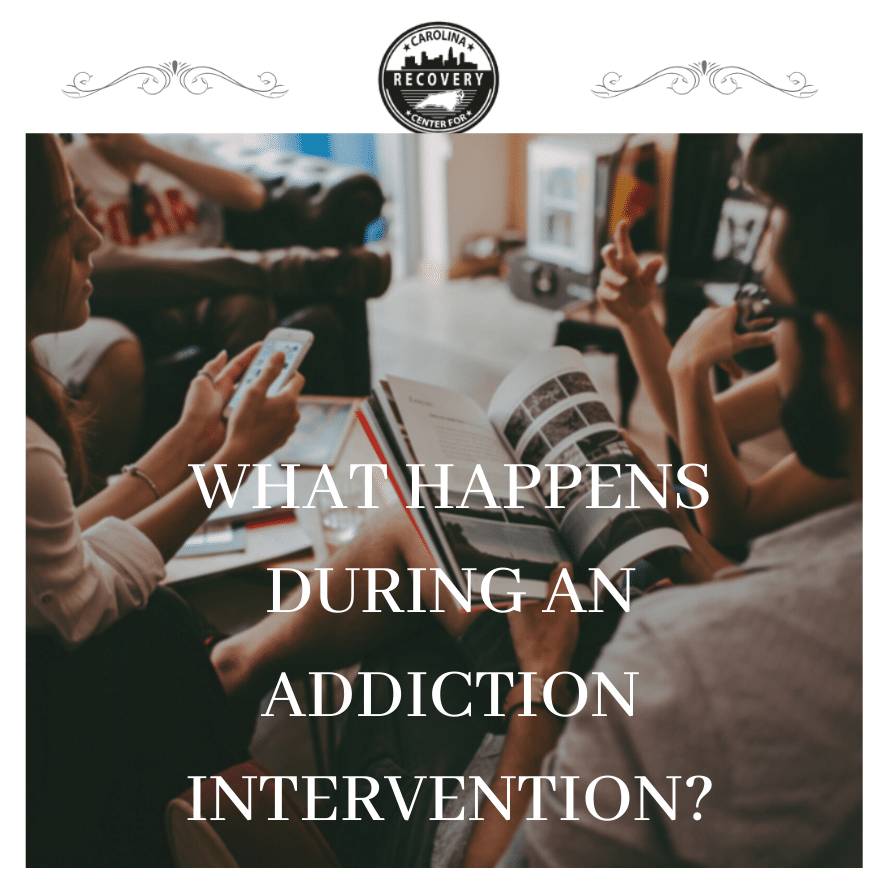What To Expect During An Addiction Intervention

Medically Verified: 2/1/24
Medical Reviewer
Chief Editor

All of the information on this page has been reviewed and verified by a certified addiction professional.
Anyone with a loved one suffering from substance use disorder has tried to think of a way to help them at one point or another. Addiction interventions are useful tools to help make a loved one suffering from addiction aware of the impact their substance abuse has on other peoples’ lives as well as their own. Interventions are scary for someone who has adapted to life by the means of drugs or alcohol. It’s equally as scary for the friends and family members who are conducting them. However, knowing how to plan for an intervention and what to expect can make the process easier.
What are Interventions and How are They Helpful?
Interventions provide friends and family members affected by addiction with the opportunity to offer a loved one help. It gives the individual with a substance abuse problem the chance to come to terms with their disease and accept any help offered before the problem progresses any further. [1]
Addiction interventions give participants the chance to detail exactly how their loved one’s drinking and drug use has affected them and why it is so harmful to them. They are also able to express negative changes they have seen the addict or alcoholic go through and hopefully open their eyes to their own deterioration. Sometimes, getting a different perspective ultimately encourages the afflicted individual to get help.
During the process, a tentative treatment plan is presented to the person who needs help. Healthcare providers and loved ones present the course of treatment that will be most effective at treating the person’s addiction. This includes detox and inpatient rehabilitation programs for drug or alcohol addiction.
How To Plan an Addiction Intervention
For a drug or alcohol intervention to be successful, it is important that it is carefully planned. Consideration needs to be made about the person with substance use disorder’s specific circumstances. It is important for them to feel safe because if they feel as if they are being attacked, it may prevent them from accepting their condition or seeking help for it. This is why it is important to express any feelings or concerns in a caring or compassionate manner.
It is extremely useful to get a healthcare professional, counselor, addiction interventionist, or social worker involved when planning an intervention. These individuals are highly trained and are able to provide valuable, unbiased insight as to what the best approach for intervention is. They will also act as a mediator between the person with the addiction and loved ones during the intervention itself.[2] This is very helpful as interventions are extremely emotional and the true purpose of the intervention can quickly be lost if there is no one to redirect the conversation.
What Happens During a Drug or Alcohol Intervention?
Addiction nterventions are stressful situations for the people conducting them and for the person with substance use disorder. The individual suffering from addiction may lash out when confronted and say hurtful things. All the while, it is important to remain calm and remember that they are suffering from a disease.
When expressing any feelings of hurt surrounding the harm the loved one may have caused, it is important to avoid shaming them or making them feel overly guilty. Causing them to feel as though they are being shamed will only serve to discourage the individual and prevent them from accepting help. Instead, thoughtfully and calmly expressing emotions is far more effective and more effectively encourages them to accept any help that is being offered.
It is important to let the addict or alcoholic know that you have their best interest in mind. Letting them know that you are their offer help will make them more open to accepting the reality of their condition and seeking treatment. During this time, it is important to let them know what their treatment options are and show them that they are readily available. This can include entering a short term detox program and later on starting an inpatient program for drug and alcohol abuse.
What Happens After an Addiction Intervention?
The goal of an intervention is to get the person in active addiction to accept that they have a problem and seek help. They may not be receptive immediately, but planting the idea will give them the motivation to get sober later on. If they are receptive, you can begin helping them to prepare for treatment by contacting a medical detox or rehab facility. This will ensure they get the proper care and attention they need to recover from their drug or alcohol addiction.
After an addiction intervention, you can turn your loved one’s care over to us. Our treatment center for drug and alcohol addiction is staffed with highly trained therapists to help your loved one overcome their substance abuse. They will work closely with them to develop a personalized treatment plan that fits their unique needs. Contact us today to learn more about the interventions process or to inquire about our family support program.

